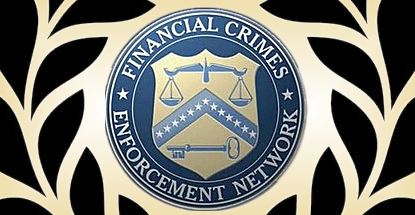 Casino operator Caesars Entertainment Corporation (CEC) says it may have to pay federal authorities up to $20m to resolve a money laundering investigation.
Casino operator Caesars Entertainment Corporation (CEC) says it may have to pay federal authorities up to $20m to resolve a money laundering investigation.
CEC filed its quarterly report with the US Securities Exchange Commission on Monday, and the “other matters” section cites the ongoing investigation of alleged violations of the Bank Secrecy Act at Caesars Palace in Las Vegas. CEC was made aware of the federal grand jury investigation in 2013 and has been cooperating with the Financial Crimes Enforcement Network (FinCEN).
CEC says that on April 29, representatives from Caesars Palace and FinCEN had a face to face, at which the government laid out “in general terms the results of their investigations and proposed a range of potential settlement outcomes, including fines in the range of $12 million to $20 million.” Caesars Palace says it is “evaluating” the offer before its next meeting with the feds in June.
CEC reminded readers that Caesars Palace is a subsidiary of CEC’s main unit Caesars Entertainment Operating Co. (CEOC), which is embroiled in some truly sordid bankruptcy proceedings. CEOC’s performance has been deconsolidated from CEC’s statements, so the size of the money laundering fine won’t affect CEC’s future results. So this is actually a positive story. Hell, make it $25m, or one dollar more than Sands paid, just for bragging rights!
Caesars joins an expanding number of American Gaming Association members who have been called on the carpet for less than optimal dedication to anti-money-laundering (AML) standards. Just weeks before Caesars first learned it was under investigation, rival Las Vegas Sands paid $47.4m to resolve some truly sketchy dealings with an alleged meth supplier.
More recently, Atlantic City’s Trump Taj Mahal was fined $10m for its own AML lapses. Fortunately for the Taj, its own bankruptcy meant the feds’ bill went into the “unsecured creditors” pile. Estimates are that the feds will ultimately collect only about $50k. Who knows how much they’ll get from Caesars.
The past few years have seen federal authorities tighten their grip on the casino industry, apparently egged on by the made-for-TV details of the Sands investigation. The same month Caesars was told it was under investigation, FinCEN director Jennifer Shasky Calvery scolded casino execs at the Global Gaming Expo in Vegas, saying “reluctant compliance with the bare minimum, if not less” wasn’t going to cut it anymore.
A year later, Shasky Calvery was back in Vegas, warning casinos to start behaving like “complex financial institutions.” This last December, FincEN warned Nevada sportsbooks to pay closer attention to their customers.
She’s only doing her job, but it would be nice to think Shasky Calvery grew tired of some of the more sanctimonious members of the US casino industry hyping online gambling’s alleged conduciveness to money laundering and decided to administer a hypocrisy test.
